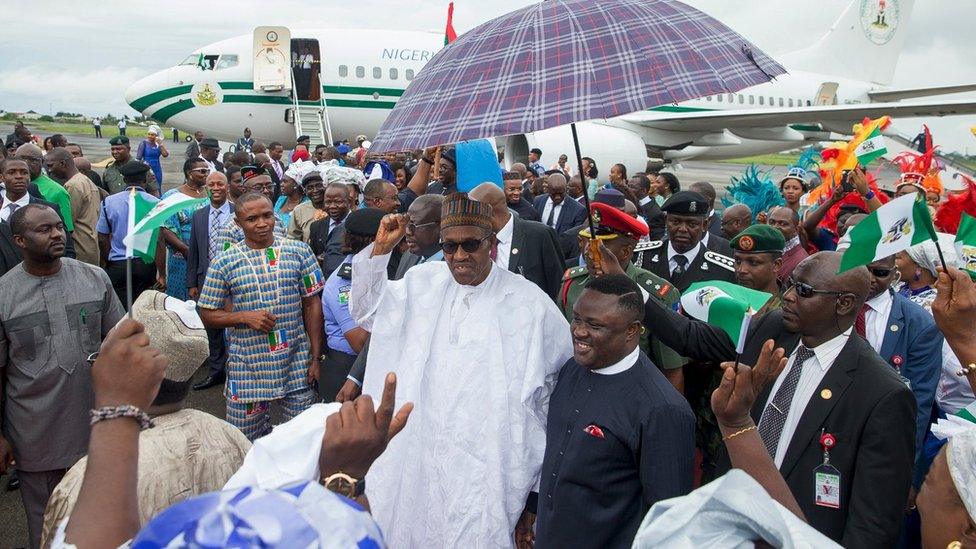Why Nigeria's women get a 50% election discount
- Published
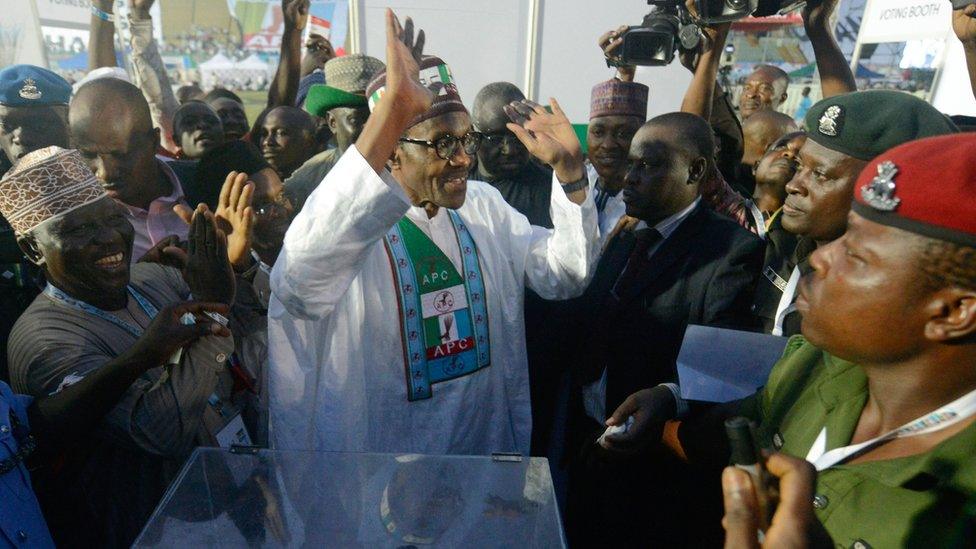
Current President Muhammadu Buhari borrowed $76,000 to run in the APC primaries in 2014
If you are a man and mulling over the idea of running for president in 2019 for one of Nigeria's main parties then deep pockets are required.
Campaigning, of course, is going to cost money, but both the All Progressives Congress (APC) and the People's Democratic Party (PDP) charge presidential hopefuls who want to run in the party primaries tens of thousands of dollars for the privilege.
The APC, the party of President Muhammadu Buhari, wants $125,000 (£97,000) for a nomination form. An opposition PDP presidential nomination is cheap by comparison - just $33,000.
Women, on the other hand, get a discount - half price for the APC or totally free if you want to try your luck with PDP. But neither party has ever nominated a woman since the return of democracy in 1999 and only one woman, Sarah Jibril, has run in the primaries.
She gained just one vote in the 2011 contest.
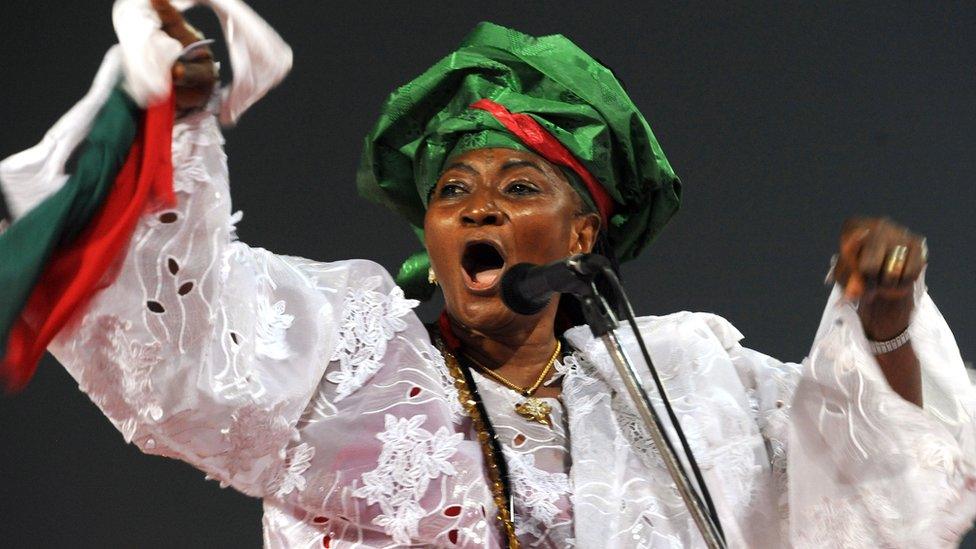
Sarah Jibril failed in her bid to become the candidate for the PDP
But for male aspirants the price tag has triggered fears that the opportunity to run for the country's highest office is only open to the rich.
Only candidates from the PDP and APC have won Nigeria's presidency since the end of military rule.
Recipe for corruption?
People have accused the main parties of using the nomination process to generate cash.
The APC has nearly doubled the price from the last election in 2015. When Mr Buhari made his bid to become the then-opposition party's candidate for president he bought his nomination form for $76,000.
At the time he said he a got a bank loan to cover the cost, but there has never been any statement on how or when the loan was repaid and with what interest.
Mr Buhari wants to run for a second term as the APC candidate - his nomination fee has been covered by a youth movement this time round.
One man who is hoping to challenge Mr Buhari, Alhaji Mumakai Unagha, has called the charges "a deliberate act to deny potential aspirants with genuine intentions for the country from accessing or collecting the form".
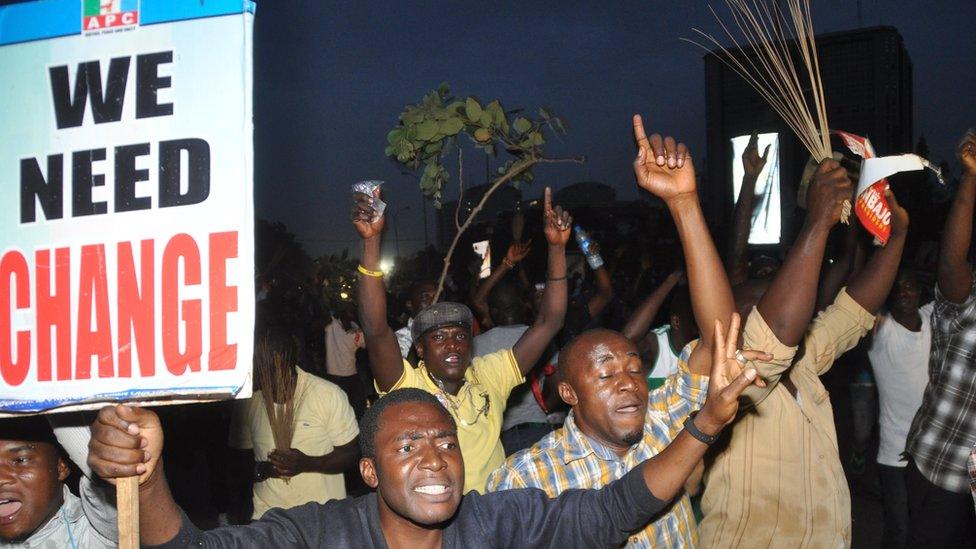
The APC won the presidential election for the first time in 2015
"With the current situation, those who stole our common wealth will now have a field day, while those of us with a genuine and burning desire to contribute to the development of the country will be denied."
Mr Unagha thinks that the nomination fee is an invitation to loot state coffers once people win office.
"The party is indirectly telling Nigerians that when aspirants get to power they should recoup their money."
Too poor to run?
This view is echoed by Nana Tim-Dudiefa Nwachukwu, who is part of the #NotTooYoungToRun movement that seeks to encourage young Nigerians to run for office.
"How do you hope to recover your money? People go into businesses for the benefits it brings to them in one way or the other.
"It means such a person will be looking at some other means outside of his or her legitimate income to recover their money."
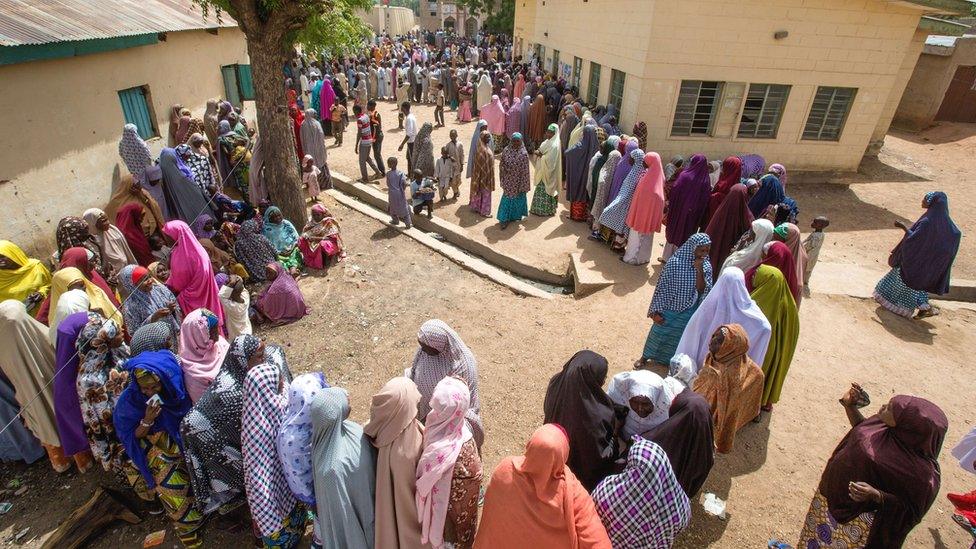
Women are keen to vote but none has yet contested the presidency with a major party
The opposition PDP has gone the opposite way to the APC and slashed its nomination fees by nearly half. But $33,000 is still out of the reach of most of the population, seeing as Nigeria's average annual income per person is less than $2,000.
Although the parties charge these nomination fees, the country's electoral commission, which has made no comment on the issue, does not charge the parties to register their candidates once the primary process is over.

Read more:

The parties have defended their charges.
APC spokesman Yekini Nabena told the AFP news agency that the fees were a reflection of the cost of campaigning and a way of ensuring the party was not in thrall to a handful of wealthy donors.
"We want the party itself to take care of the elections so that nobody will say because he gave money to the party, he wants to dictate to the party what to do," AFP quoted him as saying.
He added: "Even though you are financially handicapped, if you are the man of the people, your supporters can contribute money for you."
But the suspicion is that the office of president may now be going to the highest bidder.
'Humongous fees'
Journalist Kassim Afegbua, a member of an APC breakaway faction, has been damning.
"A party that calls itself progressives shut its doors against all democratic principles of allowing other persons to vie for the presidency," he wrote in an article in the New Telegraph newspaper.
"It imposes a humongous nomination fee... on a president it has generously branded as a poor man whose only item on his menu list is integrity."
Idayat Hassan, Executive Director of the Centre for Democracy and Development, also thinks this reflects badly on the way politics is going.
"These parties are saying offices are only for the rich candidates with [a] large war chest.
"These parties previously have tried to hide the role of money in politics but for this electoral cycle, what they have made obvious is money is the defining character for the election: no money, no contest, no money, no office.
"This has made democracy the preserve of the rich."
- Published31 July 2018
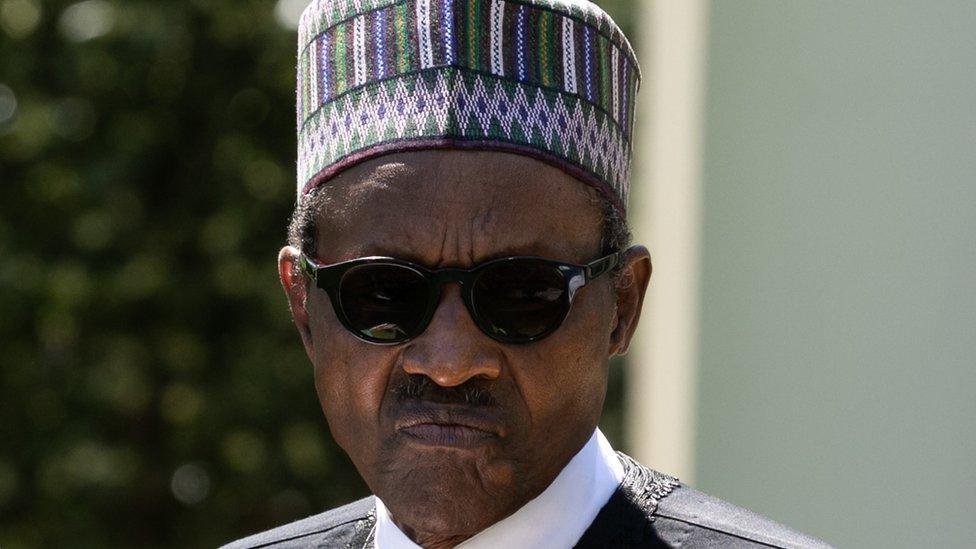
- Published28 July 2023
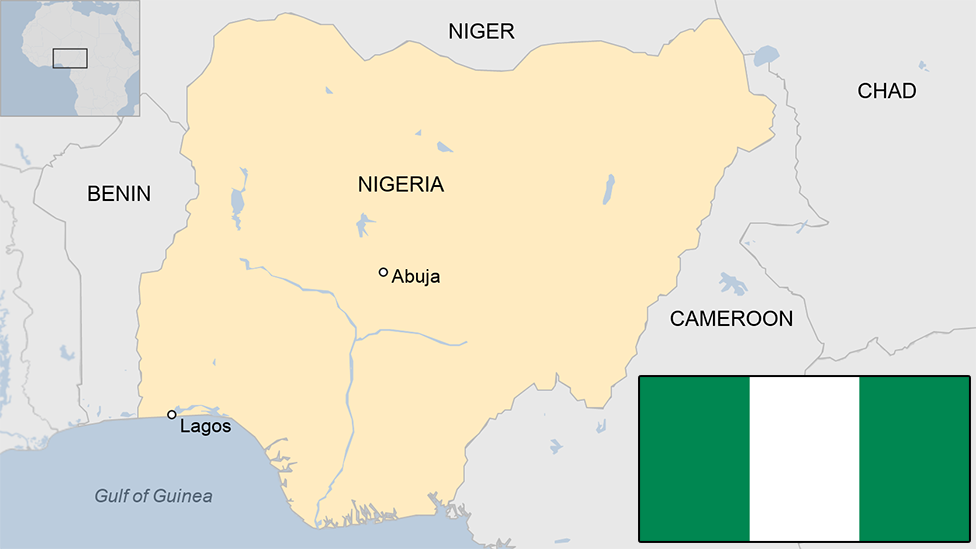
- Published4 October 2017
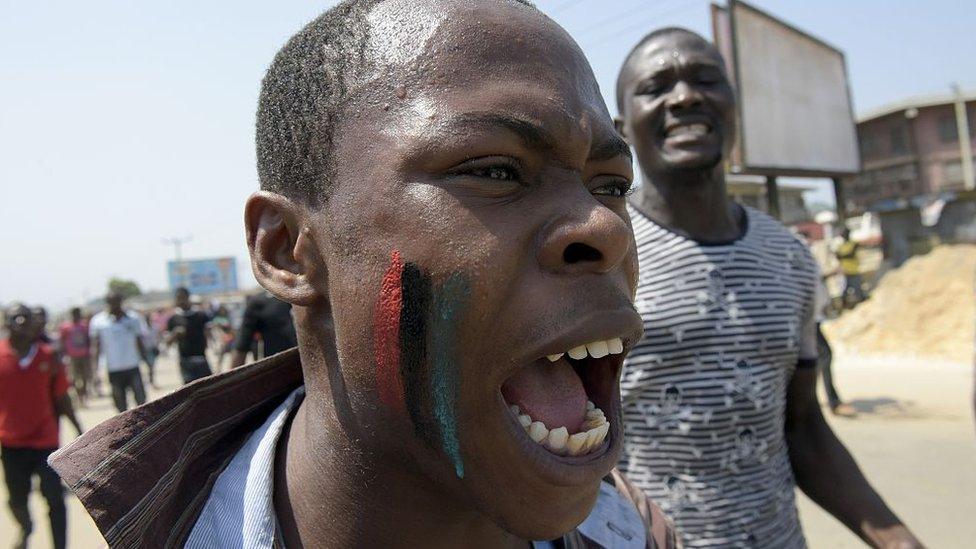
- Published9 December 2015
